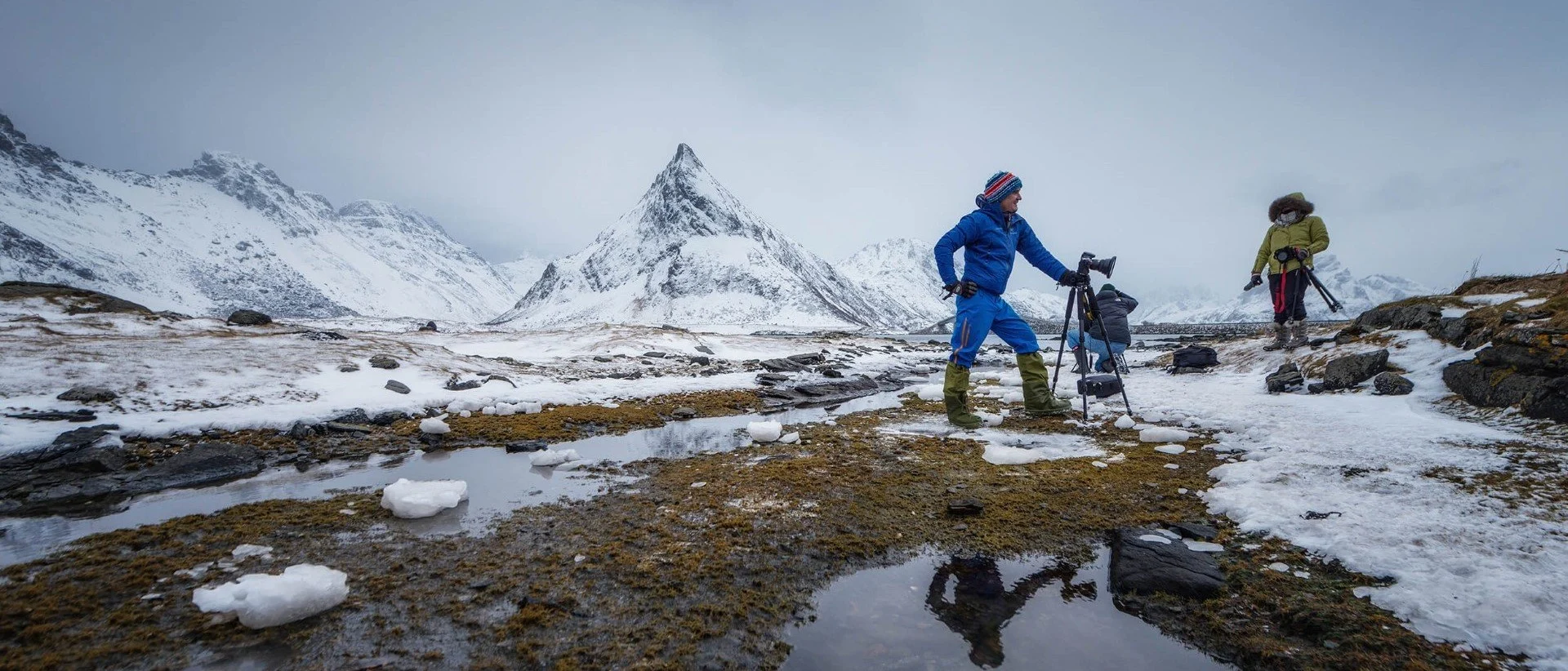
The Perfect Storm: behind the lens with Stian Klo
One week, three storms. Photographer Stian Klo braves the elements to get perfect pictures of Lofoten.
Photographer Stian Klo has just come home from his latest photo trip when he sits down to talk about his passion for photography.
"I guess I sacrifice a lot for the perfect shot. The best pictures are rarely taken on days with clear blue skies. The weather during my latest trip got a bit too rough, but it did produce some pretty nice images," Stian says.
His latest Lofoten images will join his already vast photo archive. His unique style of capturing Arctic landscapes has won him over 240k followers on Instagram so far and landed him a job with Lonely Planet. Stian’s love for nature started a long time ago, some 37 years back to be exact, in the Norwegian town of Harstad – where the northbound and southbound Hurtigruten ships greet each other every morning, and where Stian grew up.
"I spent my childhood with nature as my playground. We had the ocean on one side of the house and the woods on the other. But it was not until I moved away that I understood how truly amazing my upbringing was. The fact that I had nature right outside my door has been a huge inspiration."
It all starts outside
After spending his twenties in Oslo, Stian moved back to Harstad, where he bought his first camera – a Canon EOS 600D. A self-taught photographer, he spent countless hours browsing blogs, YouTube tutorials, e-books and different online forums. The most important thing he did was to step outside.
"I went outdoors and experimented. I didn’t have my own photo style and just took pictures of everything. It took me a while to realise what really inspired me - nature itself."
It all went up hill from there. Literally. Up hills, into fjords, out to sea – documenting the Arctic’s breathtakingly beautiful nature. Luckily, he is more than happy to share some basic tips on how to use a camera.
"Read the light and position yourself according to the sun. Avoid shooting into the sun. Having the sun at your back makes all the difference. It’s really disappointing to come home with pictures ruined by bright direct light," he says.
Stian also advises photographers to carefully plan the picture.
"Decide on your composition. Use your eyes and make a conscious choice about what you want to capture. What story do you want your pictures to tell?"
Patience is key
Stian himself is obsessed with composing the perfect photo. If he spots the perfect composition when out in nature, he stores it in the back of his mind and waits until all the elements are right. The weather, the light, the composition. Everything must be in place before he starts shooting.
"I have actually planned out a picture of a place in Lofoten that I haven’t taken yet. I have waited six whole years for the perfect moment, and I’m still waiting. One day, everything will fall into place and it will be worth the wait."
In other words, patience is key. You don’t have years to wait while sailing with Hurtigruten, but getting a great photo is still often the result of biding your time.
"Many of my pictures result from being outside for a long time. You never know; suddenly you have the shot you have been waiting for – sometimes something completely unexpected shows up. Everyone has the potential to bring home some great photos. Patience, creativity and a curious mind will take you far!"
Mountains on steroids
When Stian is not out shooting independently or working abroad, he hosts photo workshops in Lofoten. Here, he teaches people from all over the world how to capture Arctic landscapes. While guiding people through spectacular Norwegian nature, he sees their reactions when experiencing Norway for the first time.
"I had a Swiss man in my workshop once. He was used to mountains and rugged nature but was still blown away by the Norwegian landscape. He said it looked like someone had dropped the Alps straight down into the ocean," he recalls. ‘While another client of mine once said the mountains looked like they were on steroids.’
Bold but accurate, according to Stian. Asked why he thinks photographers are drawn to Norway from all over the world, he waxes lyrical.
"Tall mountains dropping into Caribbean-hued fjords is something that never ceases to amaze. Add local weather to the equation and you suddenly have photos covering all four seasons in a remarkably short amount of time! There really is no place like northern Norway," he says.
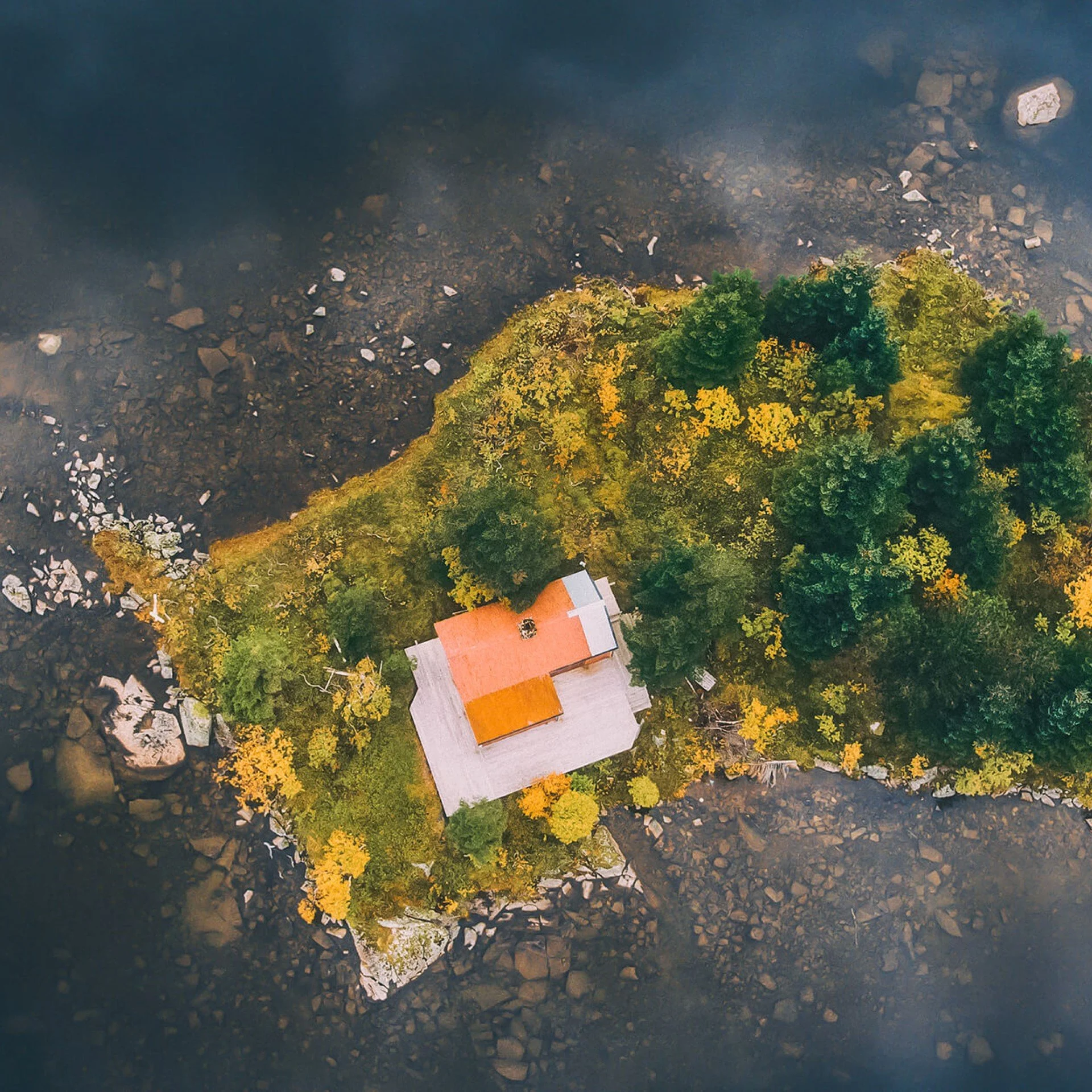
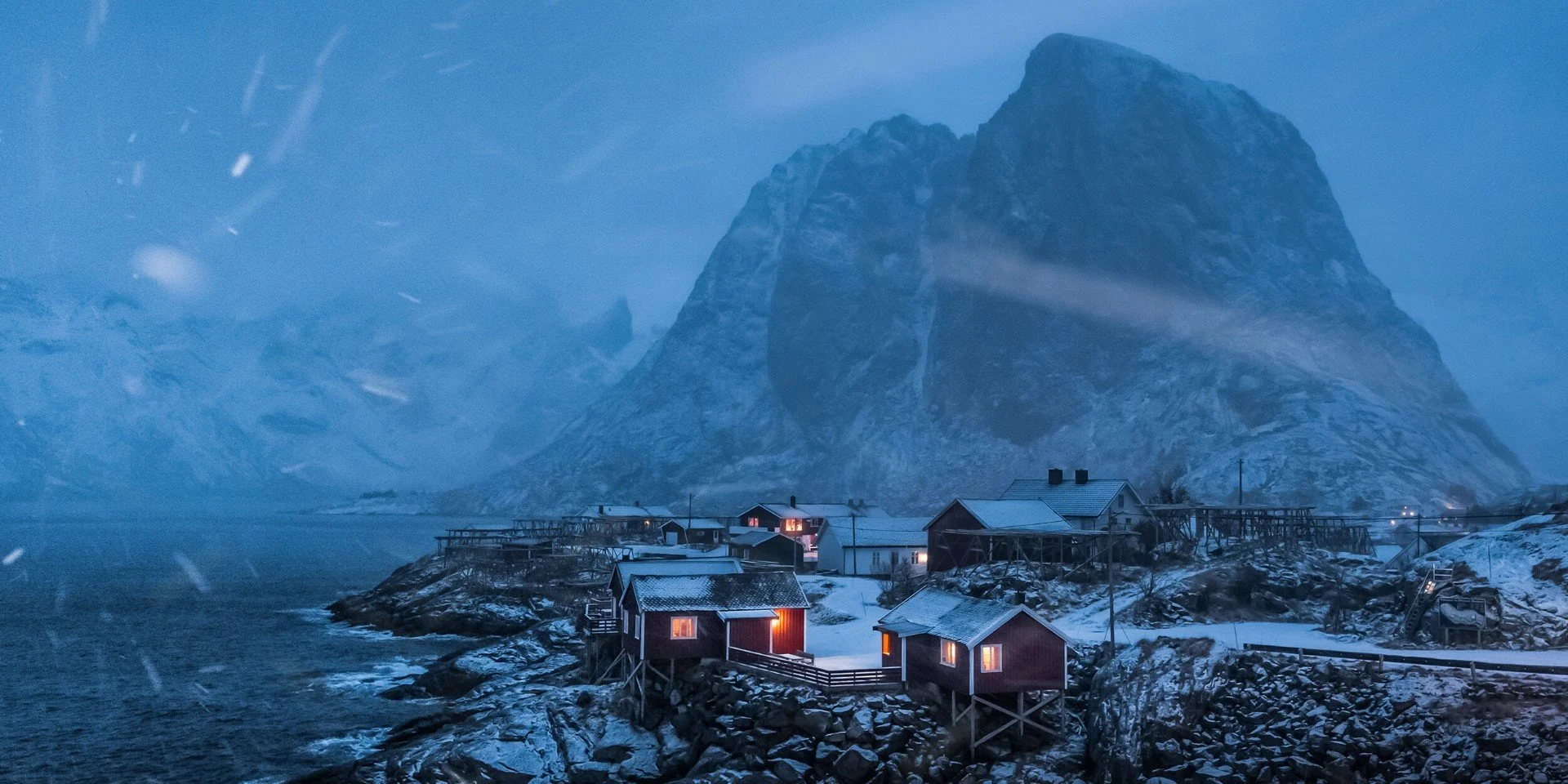
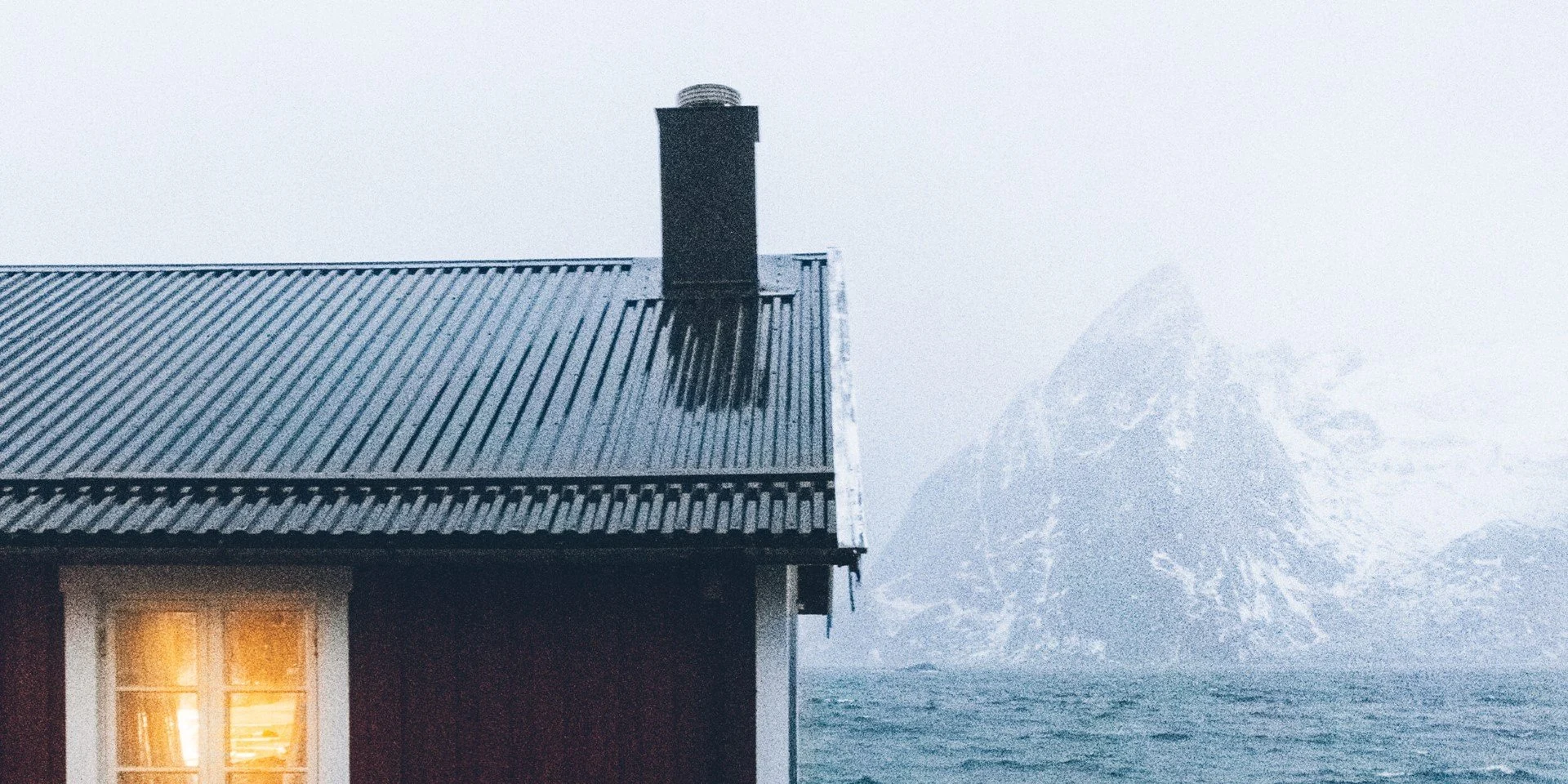
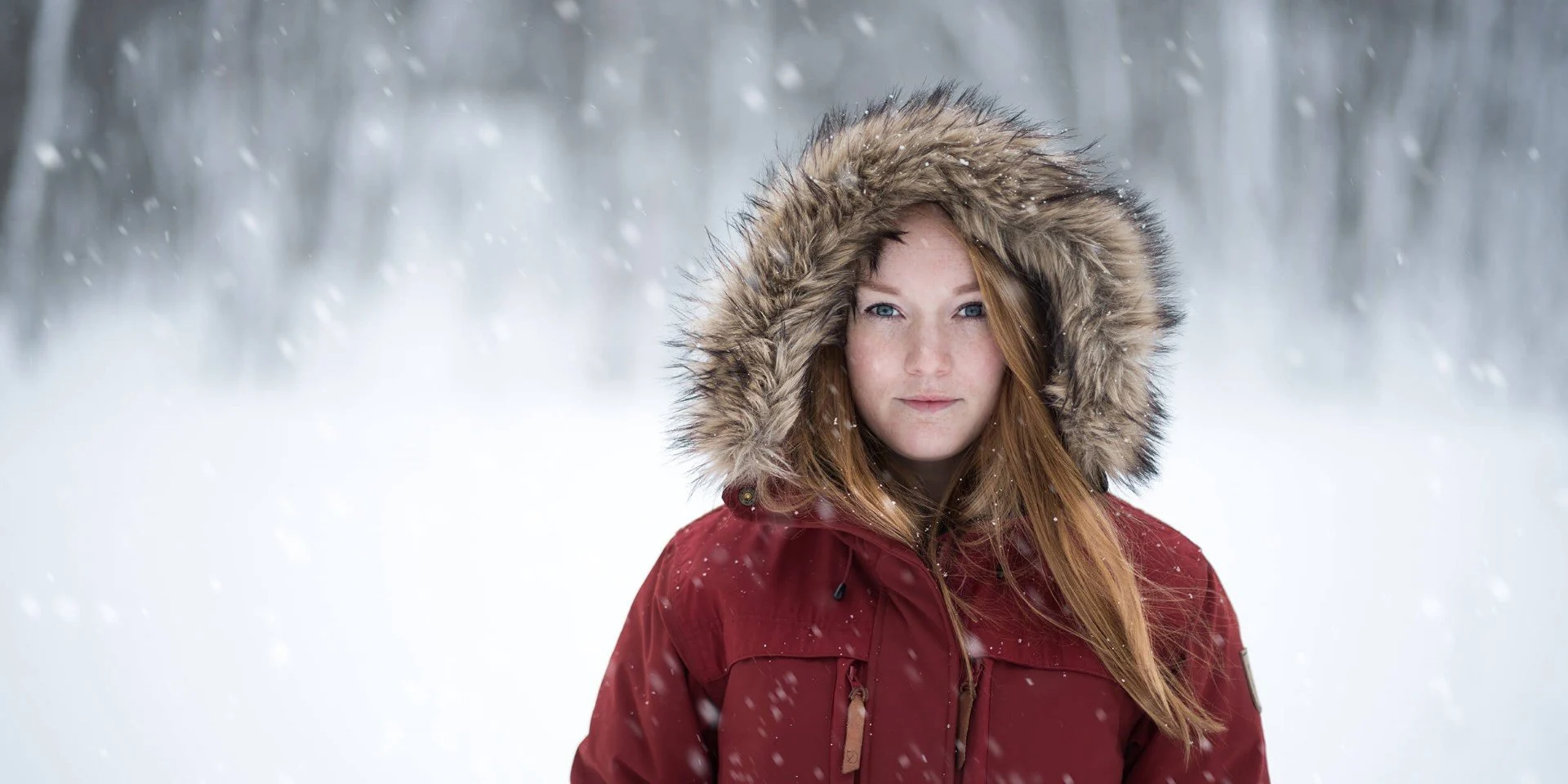
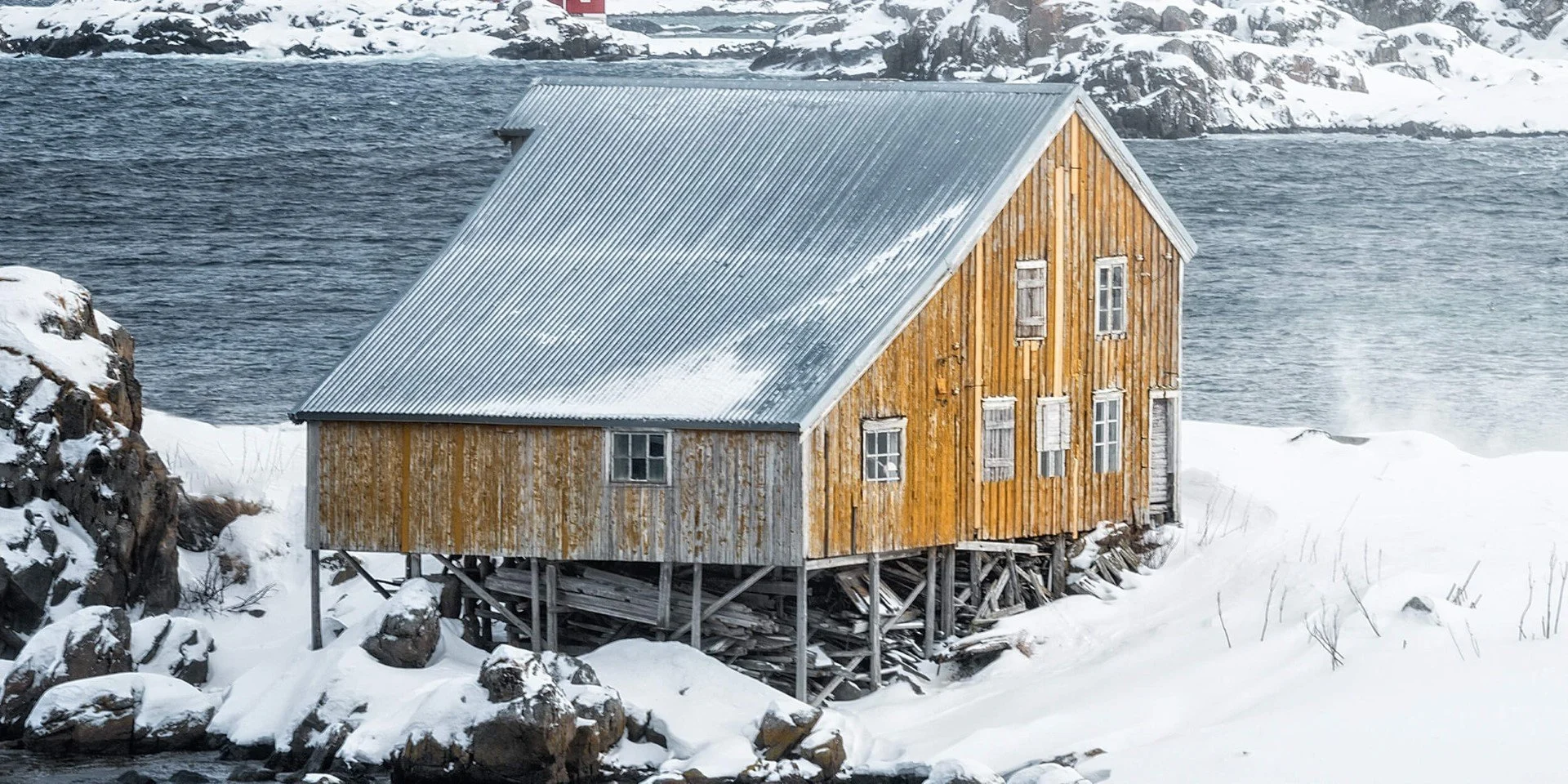
Greatest magic show on earth
When sailing with Hurtigruten during winter, you are almost certain to see the Northern Lights. Stian grew up with “the Lights”, but still finds them mesmerising.‘ You find yourself at a loss for words. Just looking up, trying to reason how this is actually possible. I call it “the greatest magic show on earth”,’ he says.
Adding a camera to the experience is, in Stian’s words, "when the adrenalin starts pumping!"
"You get so caught up in the moment when trying to shoot the Lights that it’s easy to forget the technical stuff. That’s why I always recommend some advance planning. Try to get away from big crowds and light pollution, and always bear in mind the composition of the photo. Anyone can take a picture of the sky. The photo becomes much more visually interesting if you include something else. Think about how you would frame a landscape photo, and try to do the same when shooting the Northern Lights," he suggests.
As a professional photographer, Stian instinctively knows which camera settings to use when the sky puts on a show and switches to autopilot. For less skilled photographers, there are a few handy tips that can be useful.
"Be sure to use a tripod or monopod, and a fast lens. As the boat is moving, you also need to set the camera at a high ISO value to keep the shutter speed as fast as possible. Set your lens to infinity focus and start shooting."
If your pictures are too dark, Stian recommends slowing the shutter speed or raising the ISO value until you are happy with the exposure. To ensure sharpness, make sure the shutter speed is no slower than 1/200th sec when the boat is moving.
If you’re not into the technicalities, Stian recommends using auto settings.
For smartphone enthusiasts
According to Stian, it is actually possible to capture the Northern Lights with your smartphone.
"Make sure you use a tripod or clamp. Some smartphone cameras have manual settings. If yours does, set the shutter speed from 2 to 30 seconds. When the ship is moving, that’s extra challenging. Keep the shutter speed as low as possible and try to avoid movement."
Realistically, Snapchats taken of the Northern Lights may not be top quality. Still, many new smartphones have good cameras and if you have manual settings, if you’re lucky, you can take some really nice photos.
Prepping is everything
When it comes to the Arctic, Stian has one simple message for both professional and amateur photographers:
"Be prepared for everything!"
Because the weather can change in minutes, Stian is used to thorough prepping. He always checks the weather forecast and always has a plan B and C when he arranges a photo trip. But don’t forget to use your eyes.
"Stick your head out the window and take a look for yourself! The weather in Norway is super local and can change in the blink of an eye. If you’re not pleased with the conditions, sit tight and wait a while – suddenly it all changes."
Another important part of the preparations is to dress for the occasion. Standing out on deck for hours requires the right clothes.
"If you’re spending a full day outdoors, it’s important to make sure you stay dry and warm. It’s also a good idea to use waterproof protection on your equipment, especially when the weather is wet and the seas rough."
Never stop exploring
Travelling with Hurtigruten is all about seeking new adventures. By documenting your trip, you always have something to look back on, something that keeps your memories alive. For Stian, it’s all about exploration, and he has a hunch why people are so fascinated with nature photos.
"I think it’s the explorer gene in us. People love to dream. Seeing photos of beautiful destinations urges us to get out into the world. I guess in a way, everyone wants to feel like Thor Heyerdahl (a famous Norwegian explorer). People travel so much more these days, including me. I am so fortunate to be able to travel to all these incredible places for my job."
For the most part, Stian focuses his lens on the Arctic, where ice and snow rule the landscape. In other words, we probably won’t be seeing photos from warm, sunny surf spots any time soon. He has a pretty long bucket list, but there’s one destination that stands out.
"Antarctica is at the top of my list. It looks so extreme!"
While dreaming of the frozen southern continent, he has already planned his next photo expedition. He is taking two big groups out into Lofoten once the sun returns and the high season is in full swing. Once again, he packs his camera gear and prepares for new adventures – always with one mission in mind.
"I want to capture nature for posterity, show people how much beauty is really out there. The Earth is changing, there’s no way around that. Hopefully my photos can play a small role in helping people better appreciate nature. Part of the effort to conserve and preserve nature is documenting the spectacular scenery that is out there," he says.